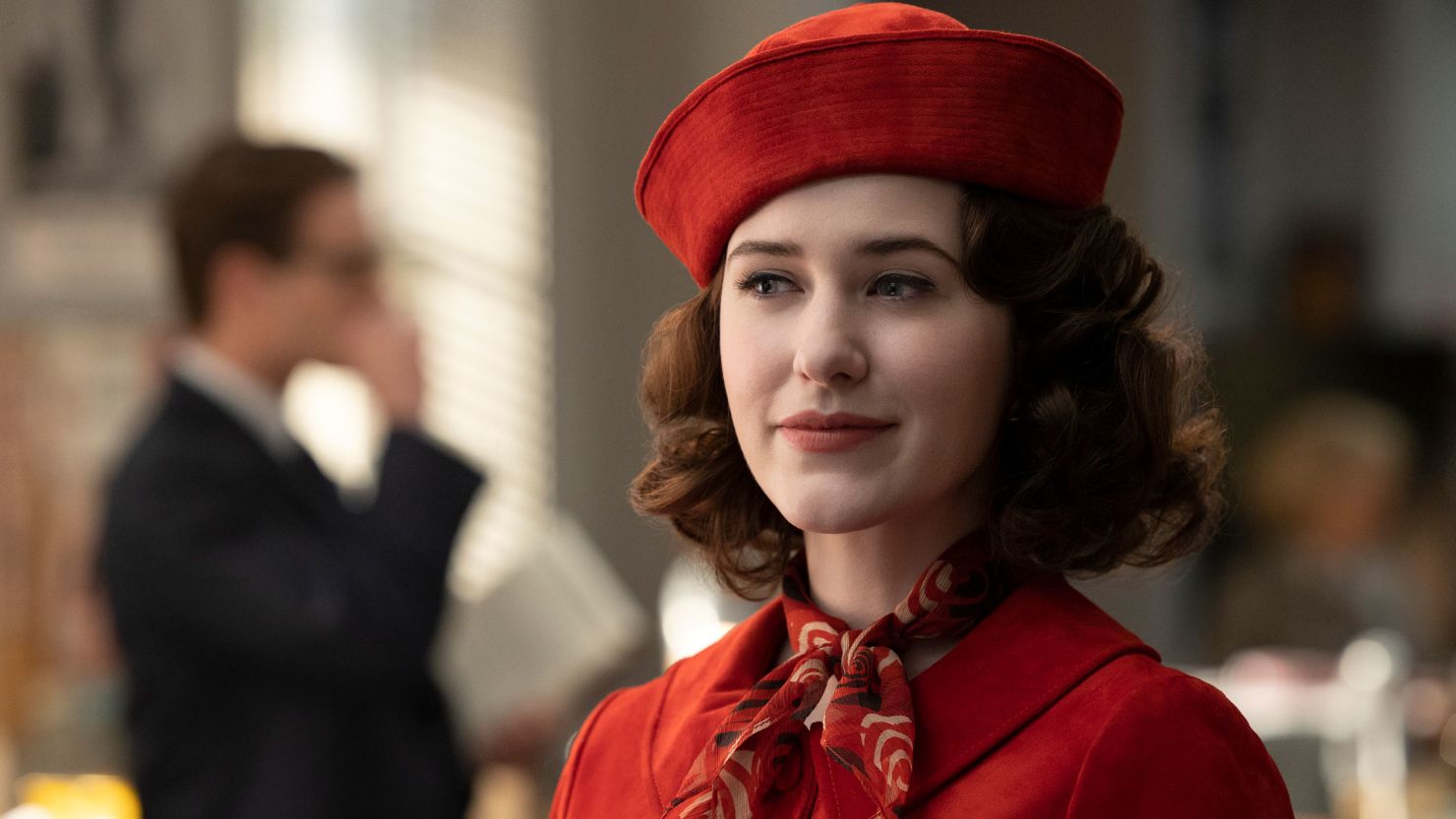Editor’s Note: The following contains spoilers about “The Marvelous Mrs. Maisel” series finale, “Four Minutes.”
In the end, “The Marvelous Mrs. Maisel” closed its act by focusing on the relationship – in the show’s world, anyway – that mattered the most.
After a series of flash-forwards throughout the final season, and a serious rift between Midge Maisel (Rachel Brosnahan) and her agent Susie (Alex Borstein), the two were back together in the distant future, laughing and bantering and watching “Jeopardy!” together like an old married couple. Having come through the wars, both emerged rich and unscathed, as conquerors of the comedy world.
That final sequence took place in 2005, 40 years after Midge experienced her “The Tonight Show” (OK, “The Gordon Ford Show”) moment, recalling a time when an appearance on a late-night comedy show – and an approving invitation to the desk from Johnny Carson – could make or break a comic’s career.
In Midge’s case, the triumphant moment came after taking a huge risk, “doing something reckless,” as she put it, when the grudging Ford (Reid Scott, nicely capturing the imperiousness associated with talk-show stardom) booked her as one of his writers, not to perform her standup act. Seizing the opportunity, Midge hijacked the showcase, killed with her standup routine and, after the aforementioned invite to take a bow next to the host, was promptly fired.
The payoff marked an appropriate if sentimental end to a series that has been uneven since its Emmy-winning first season, and whose victory for Midge and Suzy was balanced by the sad professional demise of Lenny Bruce (Luke Kirby), one of the many real-life figures to pass through her orbit. The opening depicted Lenny as a shell of himself in 1965, obsessed with his court troubles to the point of having forgotten how to entertain an audience. (The credits included a “special thanks” to Kitty Bruce, the comic’s daughter.)
The emphasis on Midge achieving stardom – and the serialized view of the fallout from that, including her relationships with her ex-husband (Michael Zegen) and kids – provided a sort of happy ending. But the show’s beating heart could really be seen at the finish, with her and Suzy enjoying that laugh while a version of “Girls Talk” played over the closing credits.
In getting there, Midge had to overcome all manner of adversity and sexism – including her season-long status as the lone female writer on the Ford show – just as the show had to overcome some of its less-admirable impulses, including its tendency to fly wildly over the top with Midge’s parents and in-laws.
By contrast, “Mrs. Maisel’s” savvy about the show-business world of that era has always been one of its strengths, and the notion of Midge using Jack Paar as leverage to try wringing concessions out of Ford represented a nice touch as part of its finishing kick.
While the series played a significant role in helping put Amazon’s original-programming efforts on the map, the last season reinforced the sense that it didn’t consistently measure up to its initial promise. And while series creator Amy Sherman-Palladino lowered the curtain with a light touch that suited the overall tone, one would be hard-pressed to say that it came down prematurely.




